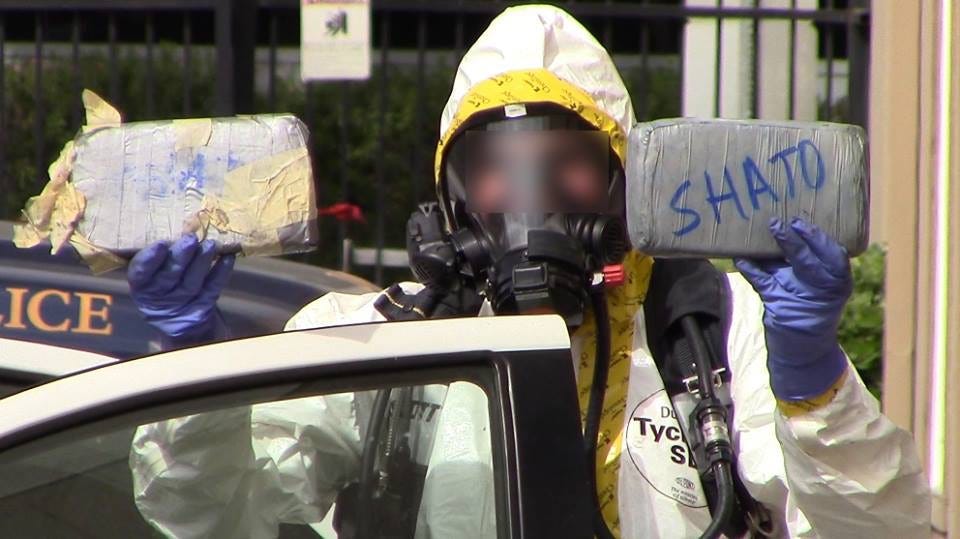The Role of Pill Presses in the Opioid Epidemic
Will DEA's move make a difference in the proliferation of pill presses?
Pill presses have become a focal point in the battle against the opioid crisis in the United States. These devices, capable of manufacturing tablets from powdered substances, are at the center of a complex web of legal and illegal drug manufacturing. A recent directive from the Drug Enforcement Administration (DEA) to e-commerce platforms regarding the sale of pill presses underscores the urgency of regulating these devices to stem the tide of fentanyl-laced counterfeit pills flooding the market.
The DEA’s warning to e-commerce companies about their role in the sale of pill presses, emphasized their obligation under the Controlled Substances Act to adhere to strict recordkeeping, identification, and reporting standards for the distribution, importation, and exportation of such equipment.
This action comes amid a devastating drug poisoning epidemic in the United States, with fentanyl playing a central role in approximately 70% of the 110,757 drug-related deaths in 2022. The DEA highlighted the use of pill presses by drug cartels, including the Sinaloa and Jalisco Cartels, to manufacture counterfeit pills containing fentanyl, which are then sold to unsuspecting individuals, contributing to a significant public health crisis. The agency reported a 33% increase in the seizure of fake fentanyl-laden pills in 2023, with laboratory tests showing a high risk of deadly doses in these counterfeit medications.
Regulatory Oversight and Legal Requirements
The United States Drug Enforcement Administration (DEA) has placed regulations on the sale and distribution of pill presses. As part of the Controlled Substances Act (CSA), e-commerce platforms and individuals engaged in the sale of pill press machines are classified as "regulated persons." This designation requires adherence to specific recordkeeping, identification, and reporting requirements regarding the distribution, importation, and exportation of pill press machines. The objective is to prevent these devices from being used to manufacture counterfeit medications, particularly those containing fentanyl, a potent synthetic opioid responsible for a significant portion of overdose deaths in the country.
However, there is no criminal penalty for selling an unregistered pill press in the United States. I can go on any one of a number of Chinese sites and order a pill press that can pump out 10,000 pills an hour. I can have it delivered to my house and if customs intercepts it, I won’t go to jail. That’s great that the DEA wants you to register them if you buy them through a US website, but what about all of the Chinese suppliers? While I’m at it, I can also order up kilos of any number of Nitazines (a controlled substance) and have it delivered with my pill press. Our federal government is failing miserably at this game.
The DEA also addressed the issue of Mexican DTO’s using the presses to make fentanyl pills. However, the DTO’s don’t buy their presses from American companies. They buy their presses from China, just like their fentanyl precursors. The DEA’s directive, which has been in place for some time, is nothing but smoke and mirrors to make the public think they are doing something to address this issue.
Impact of Fentanyl and Counterfeit Pills
The last report from DEA showed that 66% of these counterfeit pills contained a lethal dose. These pills, made to look like Xanax, Oxycodone, and other pills have proliferated our country resulting in over 100,000 deaths last year alone. The pill presses are so easy to obtain that a fellow instructor purchased one online through a Chinese retailer. He had it delivered to his home and uses it to press pills in class for his students.
Legal Consequences and Efforts to Curtail Illegal Use
The legal framework surrounding the purchase and use of pill presses is designed to deter their application in the illicit drug trade. Regulations require detailed documentation for transactions involving pill presses, including the identification of both the buyer and seller, and reporting any sales to the DEA. Which sounds great in theory. Too bad the Chinese don’t abide by this edict from the DEA. At what point will we address their chemical war against the US?
I invite your thoughts and insights on the DEA's recent actions against the sale of pill presses on e-commerce platforms and its impact on the fight against the fentanyl crisis. How do you view the role of e-commerce in this epidemic? Do you believe more stringent measures are necessary to curb the availability of these tools to drug traffickers? Please share your perspectives in the comments below.



